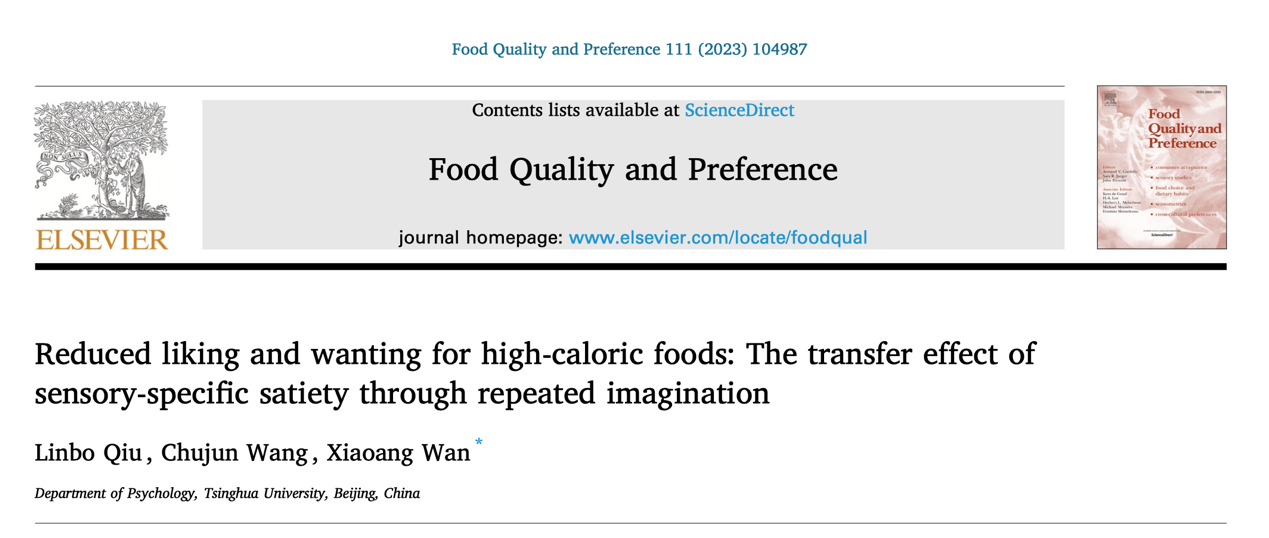Professor Wan Xiaoang's research group from the Department of Psychology at Tsinghua University has published a research paper titled "Reduced liking and wanting for high-caloric foods: The transfer effect of sensory-specific satiety through repeated imagination" in the latest issue of the international journal Food Quality and Preference (IF = 5.3, JCR Q1). The study reveals the emergence and mechanisms of sensory-specific satiety transfer after individuals repeatedly engage in imagined consumption. The first author of the paper is Qiu Linbo, a doctoral student in the Department of Psychology at Tsinghua University; the second author is Wang Chujun, also a doctoral student in the Department of Psychology; and the corresponding author is Professor Wan Xiaoang from the Department of Psychology at Tsinghua University.

Everything you can imagine is real.
---Pablo Picasso
The power of imagination is limitless. After repeatedly imagining eating a certain food in a short period, individuals experience a decrease in their liking and desire to eat that food, while their liking and desire for other foods either remain unchanged or decrease to a lesser extent. This phenomenon is known as sensory-specific satiety. Accelerating sensory-specific satiety toward unhealthy foods can effectively reduce an individual's intake of unhealthy foods, thereby promoting healthy eating habits. Meanwhile, imagined consumption can help individuals reduce potential health risks from actual consumption, such as excessive intake of unhealthy foods.
Through three experiments, the researchers discovered that after repeatedly imagining the consumption of a high-calorie food, individuals developed sensory-specific satiety toward that food as well as other high-calorie foods, demonstrating a transfer effect of sensory-specific satiety. Furthermore, this study revealed that after repeated imagined consumption, an individual's sensory-specific satiety transfers based on the caloric characteristics of foods, and this calorie-based transfer of sensory-specific satiety may be caused by habituation to high-calorie foods.
The conclusions of this study can be applied to interventions promoting healthy eating habits. On one hand, individuals do not actually consume high-calorie foods during the repeated imagination process, thus reducing the risks associated with unhealthy foods. On the other hand, after repeatedly imagining the consumption of high-calorie foods, individuals do not experience a decrease in their liking and desire for other low-calorie foods, so they may consume more low-calorie foods to maintain reasonable calorie intake.
This research was supported by the General Program of the National Natural Science Foundation of China (No. 72372081 & 71872097). Some of the data from this study was previously presented orally by the first author at the Doctoral Forum of the 23rd National Conference on Psychology and received the Outstanding Paper Award.
Paper Information: Qiu, L., Wang, C., & Wan, X. (2023). Reduced liking and wanting for high-caloric foods: The transfer effect of sensory-specific satiety through repeated imagination. Food Quality and Preference, 111: 104987.
Paper Link: https://www.sciencedirect.com/science/article/abs/pii/S0950329323001817

